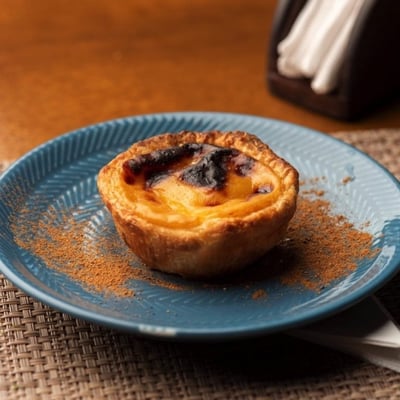1
00:00:01,805 –> 00:00:04,000
Tiago: Para onde vamos?
{{Tiago: Where are we going?}}
2
00:00:04,000 –> 00:00:06,000
Patrícia: Vamos para uma festa!
{{Patricia: We are going to a party!}}
3
00:00:06,000 –> 00:00:08,000
Tiago: Uma festa?
{{Tiago: A party?}}
4
00:00:08,000 –> 00:00:12,000
Uau, eu gosto de festas!
{{Wow, I like parties!}}
5
00:00:12,000 –> 00:00:13,000
Hugo: Tu gostas é de
{{Hugo: What you like is}}
6
00:00:13,000 –> 00:00:14,065
comer muitos bolos!
{{eating a lot of cakes!}}
7
00:00:14,065 –> 00:00:17,000
Tiago: Eu não como muitos bolos,
{{Tiago: I do not eat many cakes,}}
8
00:00:17,000 –> 00:00:19,000
eu como um bolo
{{I eat one cake}}
9
00:00:19,000 –> 00:00:20,705
de cada vez.
{{at a time.}}
10
00:00:20,705 –> 00:00:21,405
Patrícia: Claro!
{{Patricia: Of course!}}
11
00:00:21,405 –> 00:00:23,025
Tiago: De quem é a festa?
{{Tiago: Whose party is it?}}
12
00:00:23,025 –> 00:00:26,085
Patrícia: Do bebé do Fernando e da Sara.
{{Patricia: Fernando and Sara’s baby.}}
13
00:00:26,085 –> 00:00:27,205
Tiago: Ah!
{{Tiago: Ah!}}
14
00:00:27,205 –> 00:00:28,585
Que bom!
{{How nice!}}
15
00:00:28,585 –> 00:00:32,100
Em que hospital está o bebé?
{{What hospital is the baby in?}}
16
00:00:32,100 –> 00:00:34,000
Patrícia: Ele está na casa deles,
{{Patricia: He is at their house,}}
17
00:00:34,000 –> 00:00:35,625
não está no hospital.
{{not at the hospital.}}
18
00:00:35,685 –> 00:00:37,045
Tiago: Desde quando?
{{Tiago: Since when?}}
19
00:00:37,085 –> 00:00:38,885
Hugo: Desde hoje!
{{Hugo: Since today!}}
20
00:00:39,585 –> 00:00:43,100
Tiago: E que nome tem o bebé?
{{Tiago: And what is the baby’s name?}}
21
00:00:43,100 –> 00:00:44,145
Hugo: Tenta adivinhar.
{{Hugo: Try to guess.}}
22
00:00:44,705 –> 00:00:46,405
Tiago: Miguel?
{{Tiago: Miguel?}}
23
00:00:46,745 –> 00:00:48,365
João?
{{João?}}
24
00:00:48,585 –> 00:00:49,865
Carlos?
{{Carlos?}}
25
00:00:50,105 –> 00:00:51,025
Rui?
{{Rui?}}
26
00:00:51,185 –> 00:00:54,165
Patrícia: O bebé chama-se Bruno!
{{Patricia: The baby’s name is Bruno!}}
27
00:00:54,165 –> 00:00:57,000
Tiago: Ah, Bruno!
{{Tiago: Ah, Bruno!}}
28
00:00:57,000 –> 00:00:59,265
Eu quero ver o Bruno!
{{I want to see Bruno!}}
29
00:00:59,265 –> 00:01:01,165
Quanto tempo demoramos?
{{How long will it take us?}}
30
00:01:01,165 –> 00:01:05,000
Patrícia: Pouco tempo, estamos a chegar.
{{Patricia: Not long, we are arriving.}}
31
00:01:05,000 –> 00:01:07,725
Tiago: Eu estou muito contente!
{{Tiago: I am very happy!}}
32
00:01:08,145 –> 00:01:11,514
Mas mãe tenho uma pergunta –
{{But mom, I have a question -}}
33
00:01:11,514 –> 00:01:17,523
na casa do Fernando, da Sara e do Bruno…
{{at Fernando, Sara, and Bruno’s house…}}
34
00:01:17,523 –> 00:01:20,200
Quando é que comemos bolo?
{{When do we eat cake?}}
35
00:01:20,200 –> 00:01:24,000
Hugo: Tiago, primeiro vemos o bebé,
{{Hugo: Tiago, first we see the baby,}}
36
00:01:24,000 –> 00:01:26,925
depois comemos bolo.
{{then we eat cake.}}
37
00:01:26,925 –> 00:01:29,100
Tiago: Ah, está bem.
{{Tiago: Oh, all right.}}
38
00:01:29,100 –> 00:01:33,545
E mãe, de onde vêm os bebés?
{{And Mom, where do babies come from?}}
39
00:01:33,545 –> 00:01:36,505
Patrícia: O… O quê?
{{Patricia: Wh… What?}}
40
00:01:36,505 –> 00:01:38,745
Tiago: De onde vêm os bebés?
{{Tiago: Where do babies come from?}}
41
00:01:38,745 –> 00:01:40,305
E como?
{{And how?}}
42
00:01:40,705 –> 00:01:43,385
Patrícia: Uh… O pai explica.
{{Patricia: Uh… Dad will explain.}}
43
00:01:43,465 –> 00:01:45,645
Hugo: Porquê eu?!
{{Hugo: Why me?!}}
 We respect your privacy and have a ZERO TOLERANCE for spam.
We respect your privacy and have a ZERO TOLERANCE for spam.

















I feel like I’m making progress. I could understand the majority of this dialogue without having to follow along with the script. Reading the script helped me fill in the blanks without needing to look at the translation.
I love these shorties, they always make me giggle. Parabéns.
I heard the whole dialog including the ending, Paul.
Cheers,
Kathy
I got it all without the translation, too, though I did look at the transcription. The word for “guess” is a handy one to acquire.
Great to follow along and hear the questions we studied in the previous lessons. Very helpful.
Anthony
great
A very nice dialogue☺️ Understood everything without checking the text! Thank you
Very helpful
Cool . Understand the dialogue easily
This is the first time i understood 85% of the dialogue without reading the transcription! i’m elated! Thank you, I am responding rather well to your teaching methods!! :):)
Congrats, that’s awesome! Here are a few more that are good to start with: Beginner Level Shorties
These new shorties are so helpful for us beginners and encourage me to do more as I can understand them.
I also understood without looking at the text. Encouraging!, !
I would you like to know what is the difference between Beginner and Easier in your podcasts? Is there a difference?
Hi there, the levels are fairly loosely defined, since normal speech cuts across many levels, but Beginner is the simplest level. For beginner shorties, we try to stick to simpler vocabulary and grammar, repetitive phrases, shorter sentences, and mostly present tense. Beginner is a little bit more complex, with more instances of other tenses, longer sentences, and more new vocabulary being used.
Eu amo final! Haha!
Eu gosto da fim 🙂
New vocablary but easy to understand
Enjoyed this one & managed to understand most before added the translation; have some questions of my own so
questao & pergunta – are these interchangeable?
use of ‘mae’ & ‘mamai’ I thought mae = mother & mamai = mum or mummy; are these interchangeable or isn’t mamai used?
regards
Brenda LeS
Olá, Brenda. Yes, questão and pergunta are interchangeable 🙂 Mãe = mother/mum. It’s a perfectly neutral, simple term in Portuguese, unlike the English ‘mother’, which may seem formal and heavy when you use it to address your mum directly. Mamãe (mummy) is a Brazilian Portuguese term. In European Portuguese, we’d use mamã for mummy – but this tends to sound either very childish or very posh, at least to me.
Thanks very much for reply; so use ‘mae’ for when its mother or mum or mummy
forgot to add that I now have a new microphone so can actually hear the playback, which I couldn’t before & which is quite exciting
& that I do like your video clips, they are such a good idea, hearing different accents, voices & in different settings is an excellent way to get used to a variety of speech
On an admin matter, do you advise people when their next subscription is due? I don’t know when you started mine from so won’t know when to renew & I daren’t try to navigate the ‘My Account’
regards
Brenda LeS
Yes, ‘mãe’ is just fine. Thank you so much for your feedback, by the way! The video clips can be very challenging, but they give you valuable “real-world” experience 🙂
Members do get notified when their subscription is about to expire. If/when you need any additional help regarding your subscription or other issues, you can get in touch anytime via our support channel: Practice Portuguese – Contact Us
so many useful words and phrases that one needs on daily basis. Thanks.
I like the way the vocab is laid out here in just three rows. Easier to check. Even better if it was all alphabetical. I am guessing you have added some words later.
Why is there “é” in “Tu gostas é de” and why is it before “de?” In what cases should a word come between “gostar” and “de?”
Olá! The verb “é” is added only for emphasis and is not required in that sentence. This is a common idiomatic use of the verb, and it even happens with different tenses:
– Eu quero *é* ir para a praia! = What I want is to go to the beach! (“Eu quero ir para a praia” would be enough)
– Ele não sabia *era* que tu também vinhas = What he didn’t know was that you would come too
etc.
Otherwise, words that come between “gostar” and “de” are usually adverbs, especially adverbs of intensity, that further modify the meaning of the sentence. For example:
– Eu gosto muito de sopa (I like soup a lot)
– Tu gostas pouco de música rock (You don’t like rock music very much)
Thanks for the quick reply. When é (or ser) is used like that, it seems really similar to “é que” for question words. It would probably make a good learning studio article (if there isn’t already one) about all they ways it can be used.
Bom día.
Eu tenho uma pergunta…. porque quando se diz “primeiro vemos o bebe” não pode ser “primero vemos AO bebe”?? eu sou espanhol y em espanhol diria “”primero vemos AL bebe”” por isso tenho essa dúvida.
Muito obrigado pela vossa dedicaçao.
Neste caso, “o” é o artigo definido masculino singular, relativo ao bebé. “Vemos o bebé”, é uma construção simples de “Nós vemos” + “o bebé” – “We see” + “the baby”.
Se fosse “Vamos” (“We’re going”), por exemplo, poderia ser “ao bebé” (“to the baby”), o que significaria que “iríamos visitar o bebé”: “Primeiro vamos ao bebé” = “Primeiro vamos a casa do bebé” = “Primeiro vamos visitar o bebé”.
Usando o verbo “ver”, apenas pode ser “Primeiro vemos o bebé” (First we see the baby”). Tal como em Inglês não poderia ser “We see to the baby”, em Português também não poderá ser “Vemos ao bebé”, mas sim “Vemos o bebé”.